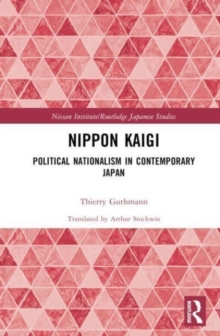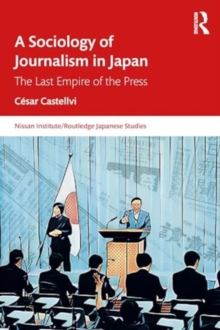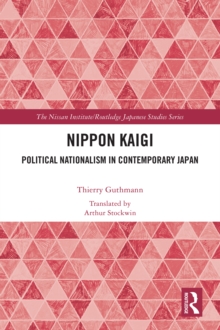
History of Japanese Economic Thought PDF
by Tessa Morris Suzuki
Part of the Nissan Institute/Routledge Japanese Studies series
Description
Economics, in the modern sense of the word, was introduced into Japan in the second half of the nineteenth century.
However, Japanese thinkers had already developed, during the seventeenth and eighteenth centuries, a variety of interesting approaches to issues such as the causes of inflation, the value of trade, and the role of the state in economic activity.
Tessa Morris-Suzuki provides the first comprehensive English language survey of the development of economic thought in Japan.
She considers how the study of neo-classical and Keynesian economics was given new impetus by Japan's 'economic miracle' while Marxist thought, particularly well established in Japan, was developing along lines that are only now beginning to be recognized by the West.
She concludes with an examination of the radical rethinking of fundamental economic theory currently occuring in Japan and outlines some of the exciting new approaches which are emerging from this 'shaking of the foundations.
Information
-
Download - Immediately Available
- Format:PDF
- Pages:222 pages
- Publisher:Taylor & Francis Ltd
- Publication Date:16/09/2020
- Category:
- ISBN:9781000110968
Other Formats
- Paperback / softback from £99.99
- EPUB from £89.99
- Hardback from £175.00
Information
-
Download - Immediately Available
- Format:PDF
- Pages:222 pages
- Publisher:Taylor & Francis Ltd
- Publication Date:16/09/2020
- Category:
- ISBN:9781000110968










